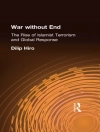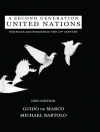Why does it matter that nations should care for their archives, and that they should develop a sense of shared identity? And why should these processes take place in the public domain? How can nations possibly speak about a shared sense of identity in pluralistic societies where individuals and groups have multiple identities? And how can such conversations be given relevance in public discussions of reconciliation and development in South Africa? These are the issues that the Public Conversations lecture series – an initiative of the Constitution of Public Intellectual Life Project at Wits University – proceeded from in 2006. Five years later, cross currents in contemporary South Africa have made the resumption of a public debate to clarify the meanings of identity and citizenship even more imperative, and an understanding of ‘archive’ even more urgent. The 2006 lectures were subsequently collected, resulting in this volume which takes its title from Weber’s point, elaborated on in the chapter by Benedict Anderson, that the future asks us to be worthy ancestors to the yet unborn. The book, as did the lecture series, aims to reach a broad and informed reading public because the topic is still of pressing interest in contemporary public discourse. In a changed (and, some might say, degraded) environment of public dialogue, the editor hopes to inspire a re-thinking of the very essence of what it means to be a citizen of South Africa. Becoming Worthy Ancestors aims to make accessible the theoretically informed, sometimes highly academic work of its various contributors. With chapters from high profile international and local contributors, it will be of interest to South African and international audiences. Editing for publication has further enhanced the accessibility of each speaker’s thinking without forfeiting any of its complexity, and the addition of an introductory chapter by the editor contributes to the coherence of the volume. While the target audience is the broad public, the book is based on a core of academic thinking and research.
Innehållsförteckning
Preface by Xolela Mangcu
Chapter One : Evidentiary genocide: intersections of race, power and the archive by Xolela Mangcu
Chapter Two : The transmission lines of the New African Movement by Ntongela Masilela
Chapter Three : Some do contest the assertion that I am an African by Frederick Van Zyl Slabbert
Chapter Four : Africa in Europe, Egypt in Greece by Martin Bernal
Chapter Five : Unconquered and insubordinate: embracing black feminist intellectual activist legacies by Pumla Dineo Gqola
Chapter Six : Identity, politics and the archive by Kwame Anthony Appiah
Chapter Seven : The goodness of nations by Benedict Anderson
Chapter Eight : Why archive matters: archive, public deliberation and citizenship by Carolyn Hamilton
Om författaren
Carolyn Hamilton is a South African anthropologist and historian who is a specialist in the history and uses of archives. She is National Research Foundation of South Africa chair in archive and public culture at the University of Cape Town.












